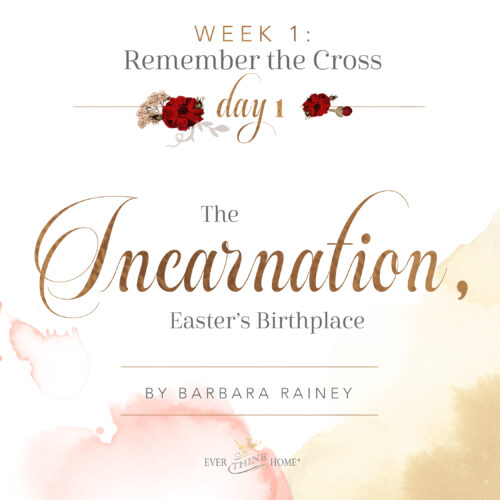
It’s the season!
Your head is spinning with preparations: shopping, cooking, invitations, fundraisers, junk mail, holiday cards and parties.
And this is above and beyond the regular stuff on your plate- sports teams, concerts, work deadlines, school projects.
And there’s the unexpected- a child’s broken leg, another ear infection, a friend in crisis.
For many there’s another source of underlying stress – your in-laws or parents are coming for the holidays – or you are going to be with them!
You may be anticipating this visit with great joy or with a bit of dread. It all depends on your relationships with them. Either way, however, simply having extra adults or extra children around will bring extra confusion and increase the level of stress.
Four tips will help make these holidays good for everyone.
1. Start with realistic expectations.
It’s easy to be swayed by the picture of a perfect family deeply enjoying one another by the fireside at Thanksgiving or Christmas.
Our longing for this image can set us up for disappointment.
There is no perfect family. We are all sinful people. You and I are going to disappoint someone in our family in this season.
And someone is going to disappoint us.
It may be wise to discuss expectations before the visit. If you are the elder visiting your adult kids, don’t go with your own plan as to how you will “help.” What looks like help to you may not be what your kids call help.
Instead say, “I’d love to help you in any way I can, but you need to tell me exactly what that will look like for you.”
And this will be different for each one of your children’s families. If you are the children visiting with your kids, ask your elders for one or two specific things you can do to help them.
After the visit, be sure your kids write a thank-you note to their grandparents. They often feel taken for granted. We all want to be appreciated. Thoughtfulness is a character trait we want to develop in our children and thank you notes provide one way to do this.
2. Guard against a critical spirit.
Your mother-in-law doesn’t load the dishwasher the way you want her to, or messes up your wash, or doesn’t pay enough attention to a specific child.
It’s easy to be critical of her, and criticism becomes resentment. Realize that her motive was to help. She may have gone about it in the wrong way, but at least she tried.
On the other side, you may be the older parent disappointed by the fact that your children are letting your grandkids trash your house. They are not disciplining them as you think they should. And you feel unappreciated.
Realize that your children are exhausted.
The season of parenting little kids is one of the most stressful periods of life and young parents are usually exhausted. Cut them some slack, especially in this season. Holidays and family reunions are not the best time to deal with “issues.” Issues are better dealt with during the year.
Family reunions are times to celebrate what is good. The rest of the year is the time to nurture the relationships. In this season choose to believe the best in one another.
3. Plan specific fun.
One of my greatest treasures is an old cassette stape on which we recorded an interview we did with my elderly Grandmother. We asked her what it was like to grow up in the deep South. (She was born in 1889!) We asked her what was invented while she was a child, what life was like for her parents and grandparents, toys she played with, who was President, what was happening in the world.
Plan to video an interview with your elders. Have your kids come up with some of the questions. This is their heritage and one day they will appreciate it.
One family I know makes gingerbread houses. It’s a multi-generational tradition and provides fun bonding for all.
Plan one or two specific things to do together.
4. Keep the main thing the main thing.
In today’s world, it’s easy to let our family – or the family we wish we were – become an idol.
If there are difficult relationships within our families, we feel like failures. We look at another family, and they seem to have it all together, to be perfect.
And ours isn’t.
And this pain becomes more pronounced during the holidays. This is normal, but we have to remember that our family is not the main issue nor should it be the central focus.
Christmas is about the birth of Jesus who was born to die. In fact to die on the cross so that our sins might be forgiven.
He knows we are broken. He knows not one single family is perfect. That’s why He came. He came to bring healing for all. No matter what type of family you come from there is good news: You can be the first of a generation of healthy families.
This season we need to keep our focus on Him. We need to ask Him to give us a grateful heart for what He has done for us and to ask Him for the insight to see things to be grateful for in each family member.
Blessings,
Susan Yates




This is really helpful. Thank you Susan!!
thank you so much for this article. it is so informative and honest.
Wonderful, practical advice I plan to put into action this year.
Thank you Susan.
Well, thank you so much! Practical, encouraging and inspiring. I’ll re-read in the coming weeks!
Thank you so much for this article. As I began to skim through the article I came to #2 and stopped. Apparently this article needed my full attention and heart. So I stopped and put on my computer glasses and read every word – not skimming but slowly and with purpose of both admonishment (which I needed) and better yet encouragement.
Thank you.